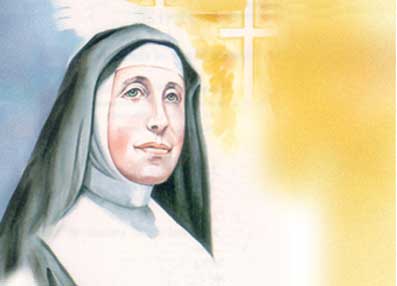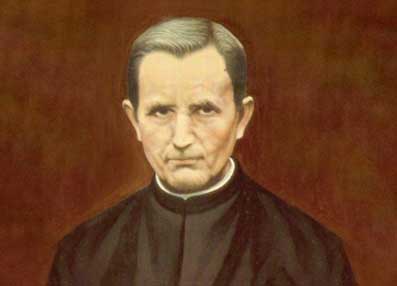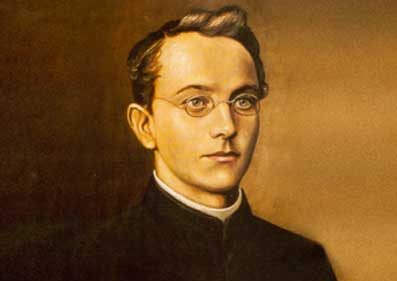Father Pancratius Pfeiffer
Successor to the Founder as Superior General.
Markus Pfeiffer was born on October 18, 1872, in Brunnen, Germany, and joined the Society of the Divine Savior as Frater Pancratius on March 21, 1889. After his ordination on May 30, 1896, he was assigned to the Motherhouse and his duties included being private secretary to the Founder. At the first general chapter of the Society, he was elected procurator general and kept this position until 1915. He thus made many contacts with leading figures in the Curia at the Vatican. During these years he also became one of Jordan’s consultors. The third general chapter, held in Fribourg in Switzerland in 1915, elected him superior general.
Jordan’s necrology tells how this election came about. “Because of these circumstances (Jordan’s scrupulosity) he found certain matters of government difficult, and this got worse as time went on. The Reverend Father (Jordan) was himself aware of this and at the beginning of the third general chapter in the autumn of 1915, he decided to renounce his re-election as superior general… this change of government touched him deeply, being so involved in the Society… he told me ‘I couldn’t bear it if I were not on such good terms with you.’”
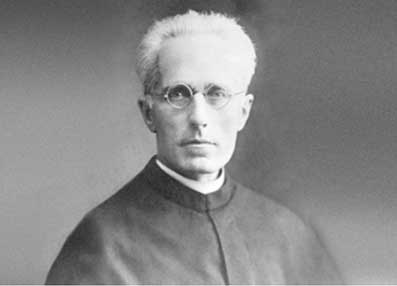
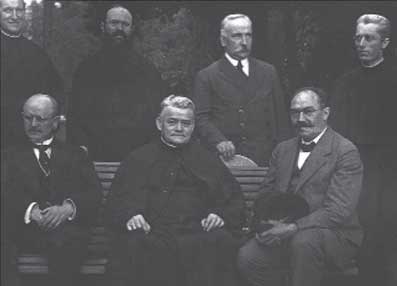
Father Pancratius led the Society for thirty years. He always used the Founder as his model. He considered Jordan’s personal virtue and saintliness a basis for governing as a religious superior. Referring to the farewell scene of Elijah and Elisha, he wrote after Jordan’s death: “Let, I pray you, your spirit be twofold in me.”
As superior general Pfeiffer considered it his holy duty to encourage the members to strive for perfection, according to the Constitutions. Most effective for him was the oral and written exchange of thought. This form of contact had great influence among the members of the Society at that time. His answers and special illustrations to questions about religious life are like a book, presenting an ideology valuable then and now. He regarded this exchange of ideas as more important for a young, developing religious community than for an older religious order, whose spirit and practices are fixed and confirmed through centuries of tradition. Along with Father Bonaventure Lüthen, he considered the lack of a tradition a challenge for a young religious society.
His talents, diligence, realism, and decisiveness made Pfeiffer an excellent, undisputed authority, in spite of a financial crisis in 1930, which overshadowed his period of office. This is seen especially in the great vacuum caused by his death from a street accident on May 12, 1945. His influence on the development of the young Society over so many years is undeniable. He shared his own formation, influenced by Jordan and Lüthen and enriched by his spiritual and theological development in Rome.
During the Nazi occupation of Rome in 1943 and 1944, Pfeiffer acted as an intermediary between Pope Pius XII and the German authorities. He managed to have many people released from prison and saved many lives. Every day he would visit Regina Coeli prison and another in Via Tasso, returning with a freed prisoner, also from among those who had been sentenced to death. He tried to help all people, regardless of their religion or political views. His charitable attitude earned him the name of the Angel of Rome. He also made an important contribution towards saving some Italian towns from being bombed.
On his return from celebrating mass on the feast of the Ascension with the Salvatorian Sisters Father Pancratius was accidentally knocked down by a British military police vehicle in the Largo Cavalleggeri not far from the Holy Office. He died on 12th May 1945 as a result of the injuries, though not before clearing the driver of the car from any blame. His requiem took place in the nearby Church of the Holy Spirit and was attended by numerous cardinals, bishops, religious superiors and many others including Prince Carlo Pacelli and his brother Giulio, Duke Caparelli, Baron von Weizsäcker and Father Paolo Dezza, SJ, rector of the Gregoriana. No one will fully know how much Father Pancratius achieved but the city of Rome acknowledged his important role during the occupation by naming the street adjacent to the Motherhouse of the Salvatorians in his honour.
